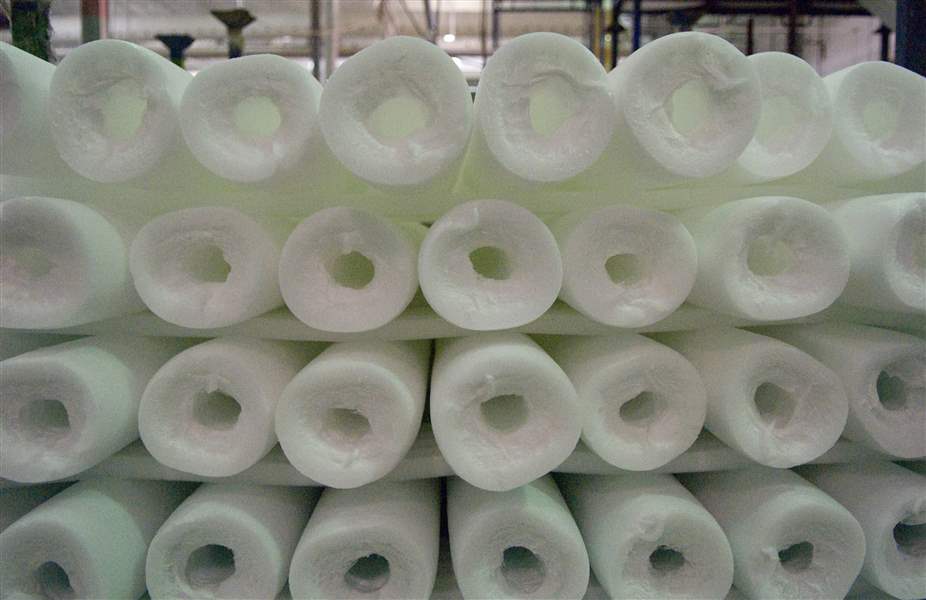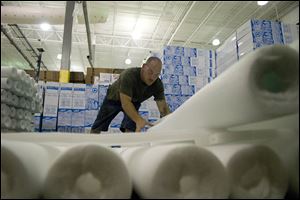
Mich. firm's big noodles to fight oil spill
6/22/2010
The foam tubes will be used to float booms intended to protect coasts in the Gulf of Mexico.
Wendy Torello / AP

Joshua Gierman stacks the foam tubes at Fagerdala World Foams. They are a large version of the 'pool noodles' the firm makes.
MARYSVILLE, Mich. - Barry Jorgensen has never traveled to the Gulf of Mexico. That doesn't mean he isn't concerned about the extensive oil spill affecting that region.
"I'm disgusted with what is going on there," said Mr. Jorgensen, 50, of Marysville, Mich., about 50 miles northeast of Detroit.
Now, he is getting a chance to help. As a process engineer at Fagerdala World Foams in Marysville, he has helped create a product being used in the manufacture of booms used to prevent spilled undersea oil from spreading in the gulf.
The product?
Basically, it's an oversized "pool noodle."
Fagerdala, based in Sweden, makes traditional ones for various companies - colorful, hollow tubes children use to float around on in water. These specialized products are not the colorful variety.
Instead, the foam "logs" - as those at the plant call them - are 6 feet long, 6 inches in diameter, and completely white.

The foam tubes will be used to float booms intended to protect coasts in the Gulf of Mexico.
Charlie Cronenworth, the plant manager, said Fagerdala was contracted - through a professional contact with Prestige Products, based in Walker, Mich. - to make 3 million feet of pool noodles to float the booms for the gulf.
The booms themselves are manufactured by the Walker company, Mr. Cronenworth said.
In addition to the noodles, the floating barriers use fabric skirting to keep oil in place.
Prestige Products has reported it has been making about 100 completed booms daily. And so far, Fagerdala has produced about 300,000 feet of the necessary noodles.
That's a tenth of the goal. Mr. Cronenworth said the increased work has meant adding the equivalent of six full-time employees to Fagerdala's work force the past three weeks.
The increased work is likely to continue "for a minimum of a year," Mr. Cronenworth said, with the oil spill expected to create a continuing demand for containment booms in coastal areas.
The company uses small pellets of recycled foam mixed with isobutene - a hydrocarbon that at normal temperatures is a colorless, odorless, flammable gas - to make the product.
Mr. Jorgensen said the mixture is melted, then highly pressurized, which keeps it in a liquid form.
It then is cooled and depressurized, which makes the material expand to form the noodle.
The noodle then is cooled in a water bath, cut, and shipped.